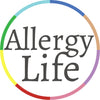Hypersensitivity types may be- Type I, Type II or Type IV Allergy
Immune reactions may be from- IgE, IgG/IgM or T Cells
Reaction may occur in- Minutes to over 24 Hours
Not all medicated drugs work in the same way for all people, and some can cause allergic reactions to the immune system for certain people, while the same drug has no adverse reactions for others.
Drug allergies caused from medicated drugs may lead to mild to severe and life-threatening reactions, regardless of whether the drug is ingested or injected.
Allergies to drugs are not the same as side effects (known reactions as per labels) or drug toxicities (medication overdose).
Some common Drugs that may cause Allergies:
- NSAIDs (Aspirin, ibuprofen and other nonsteroidal anti-inflammatory drugs)
- Antibiotics such as Penicillin and related
- Antibiotics containing sulfonamides (sulfa drugs)
- Anticonvulsants
- Anesthesia
- Insulin
- Chemotherapy drugs
- HIV drugs
- Muscle relaxers given by IV

SYMPTOMS
Some of the symptoms may be characterised by:
- Shortness of breath
- Wheezing
- Skin rash
- Hives
- Vomiting
- Itching
- Fever
- Swelling
- Runny nose
- Itchy, watery eyes
- Asthma aggravation
- ANAPHYLAXIS
The validity and severity of these symptoms are dependent on the individual and the level of exposure, as determined by a qualified health care provider.
TREATMENT
If you experience or are in the presence of someone who encounters a serious reaction (this may include difficulty breathing, wheezing, throat tightening, swelling, collapse, etc), follow their action plan or emergency instructions and call or have someone call Triple Zero (000) immediately.
Adrenaline (Epinephrine) is the first-line treatment for Anaphylaxis. After administering Adrenaline (Epinephrine), seek emergency medical attention by calling Triple Zero (000) for an ambulance.
If you are unsure what to do, call Triple Zero (000).
If you or someone you know is suspected of having an allergy, it’s important to discuss diagnosis, symptoms and treatment with a qualified health care provider to understand how to manage individual allergies and also to set up an Allergy Action Plan in the case of a reaction.
Always present your Allergy Card, Medical Alert Bracelet, Action Plan or Necklace to ensure health care providers, family members, friends, colleagues and others are aware of your Allergies.
TESTING
A skin test or a drug challenge test may be used to test for a Drug Allergy.
LABELLING
All drugs products are labelled with their ingredients on their packaging, which will provide you with guidance. If the ingredients are not listed, check with the place you are purchasing from. If being prescribed or at a healthcare facility, ensure they practitioners are aware of your allergy so they assist and guide you accordingly.
RANDOM DRUG FACT
Asprin was the first safe and effective non-addictive drug medication made available. It was made available in 1899- over 121 years ago!
The information provided on Allergy Life Australia is to generally educate and inform you about living with allergies, intolerances and conditions, and is not intended as medical instruction or as a substitute for diagnosis, examination and advice by a qualified health care provider.




